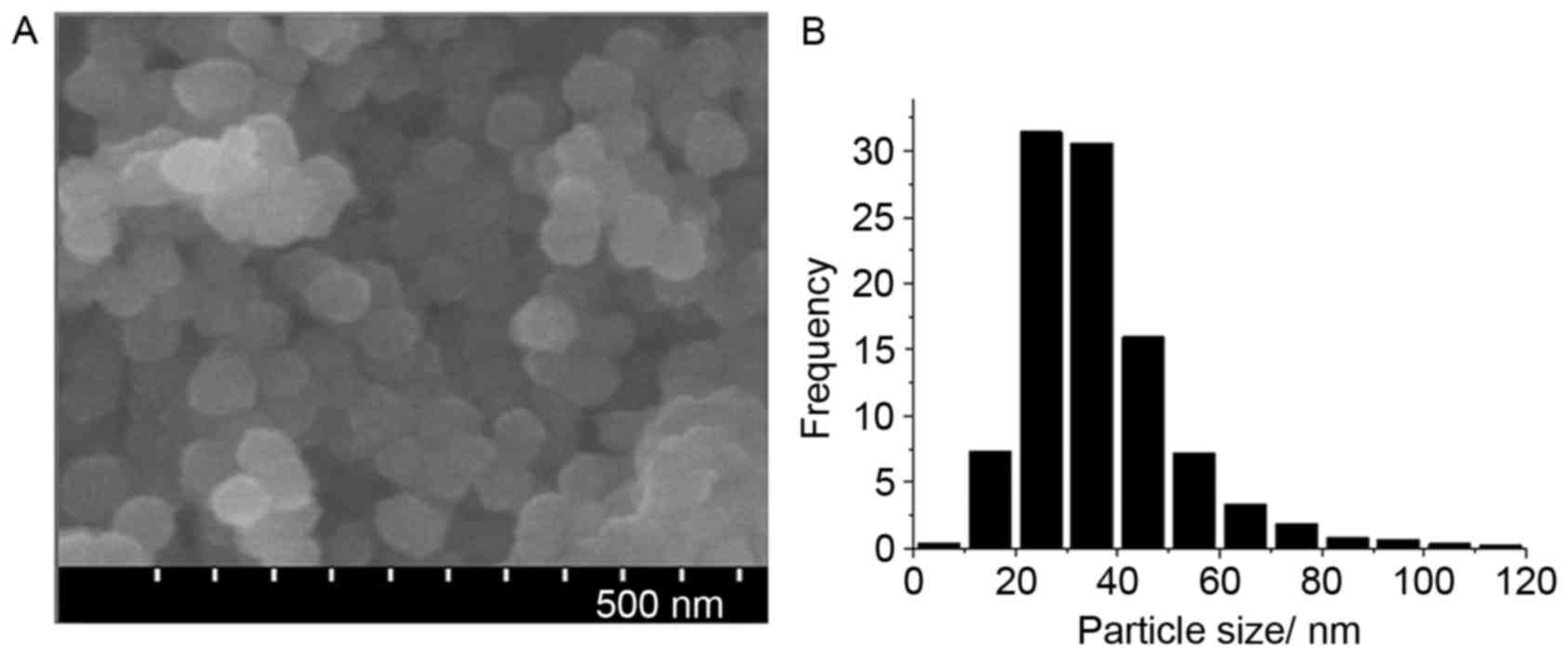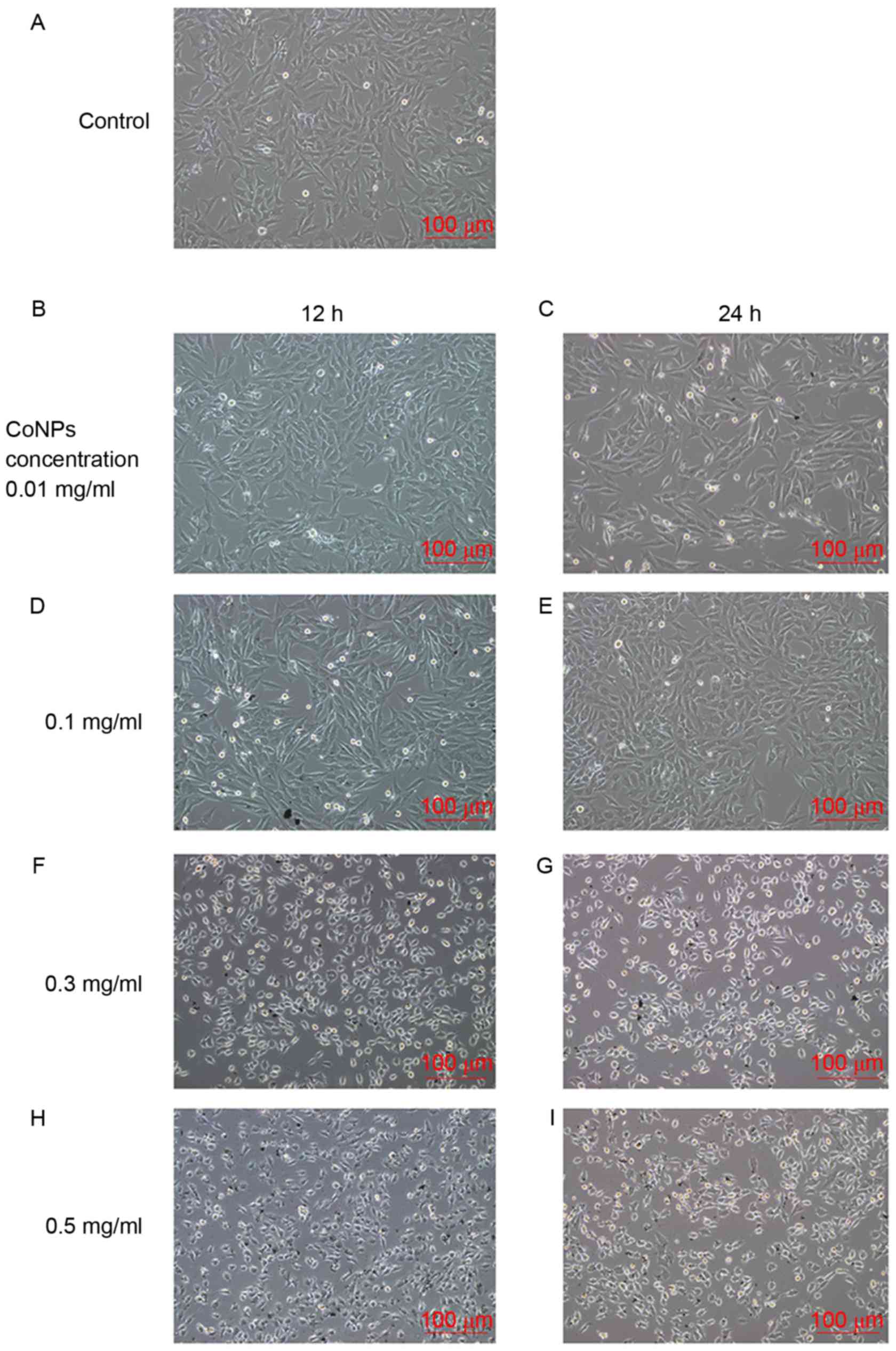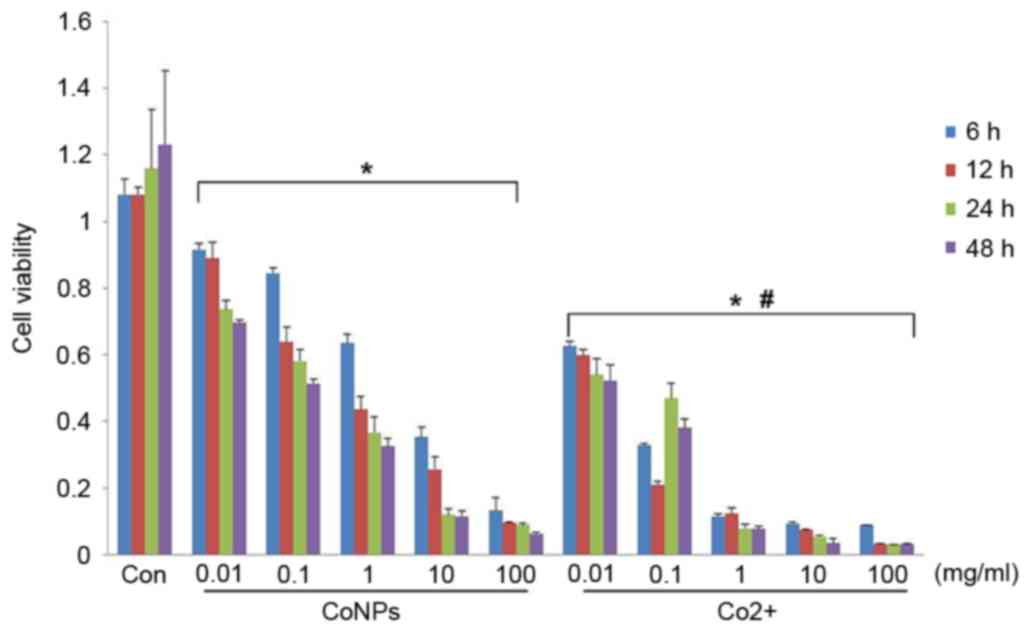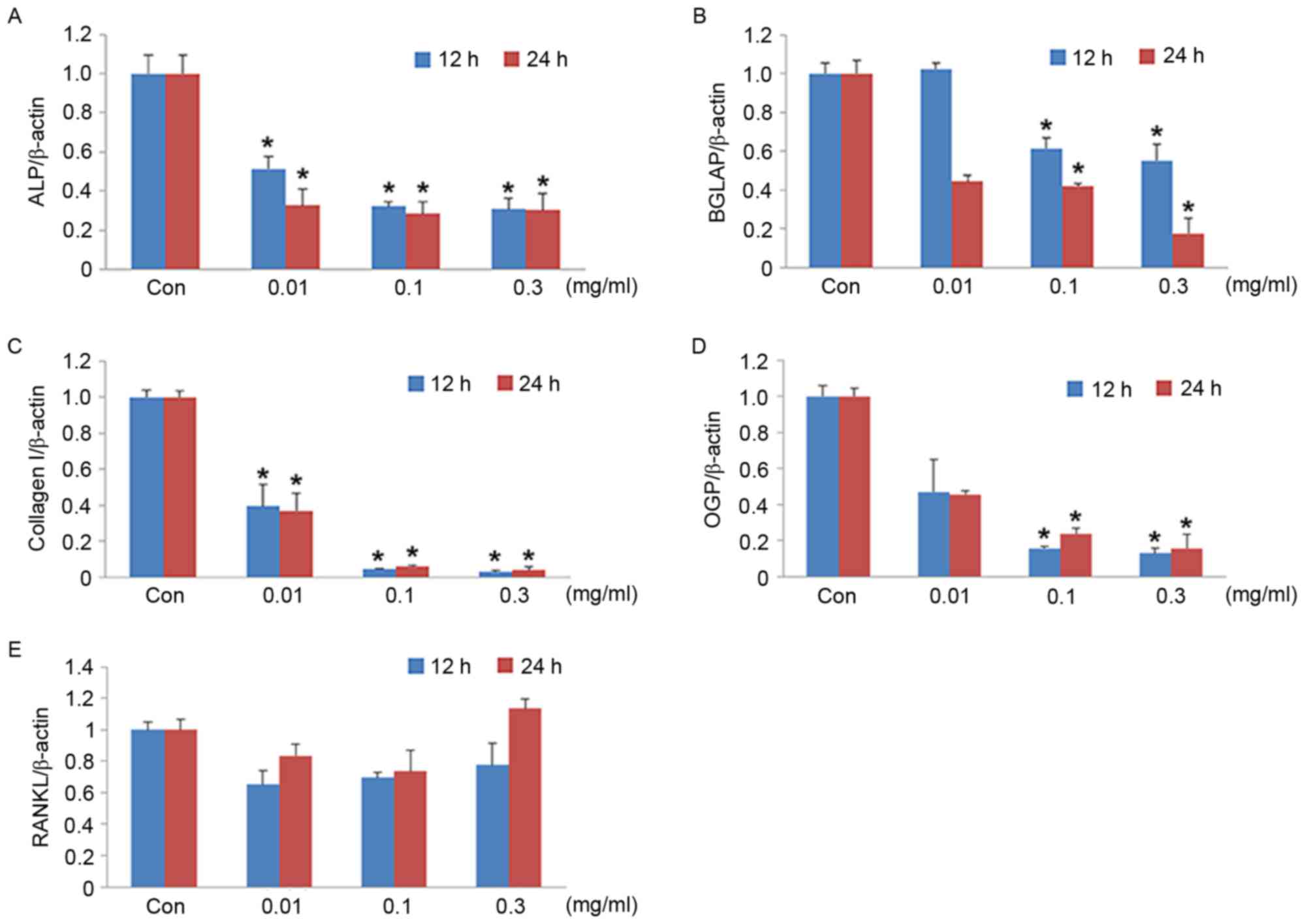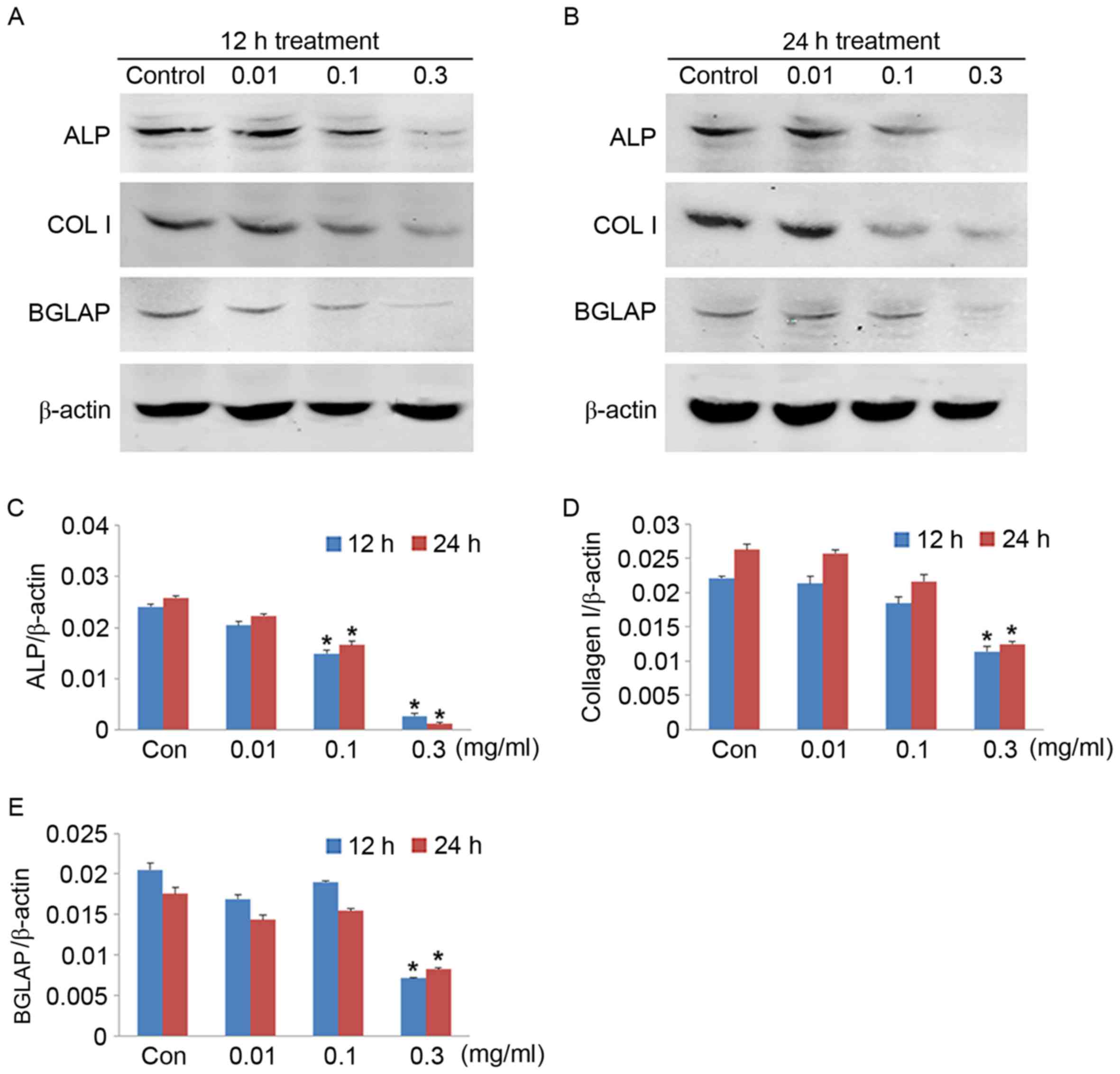|
1
|
Administration TUSFaD: Information for all
health care professionals who provide treatment to patients with a
metal-on-metal hip implant. 2015 https://www.fda.gov/MedicalDevices/ProductsandMedicalProcedures/ImplantsandProsthetics/MetalonMetalHipImplants/ucm241744.htmAccessed.
January 9–2015.
|
|
2
|
Fathi M, Ahmadian M and Bahrami M: Novel
bioactive Co-based alloy/FA nanocomposite for dental applications.
Dent Res J (Isfahan). 9:173–179. 2012. View Article : Google Scholar : PubMed/NCBI
|
|
3
|
MacQuarrie RA, Chen Y Fang, Coles C and
Anderson GI: Wear-particle-induced osteoclast osteolysis: The role
of particulates and mechanical strain. J Biomed Mater Res B Appl
Biomater. 69:104–112. 2004. View Article : Google Scholar : PubMed/NCBI
|
|
4
|
Devlin JJ, Pomerleau AC, Brent J, Morgan
BW, Deitchman S and Schwartz M: Clinical features, testing, and
management of patients with suspected prosthetic hip-associated
cobalt toxicity: A systematic review of cases. J Med Toxicol.
9:405–415. 2013. View Article : Google Scholar : PubMed/NCBI
|
|
5
|
Jantzen C, Jorgensen HL, Duus BR, Sporring
SL and Lauritzen JB: Chromium and cobalt ion concentrations in
blood and serum following various types of metal-on-metal hip
arthroplasties: A literature overview. Acta Orthop. 84:229–236.
2013. View Article : Google Scholar : PubMed/NCBI
|
|
6
|
Pizon AF, Abesamis M, King AM and Menke N:
Prosthetic hip-associated cobalt toxicity. J Med Toxicol.
9:416–417. 2013. View Article : Google Scholar : PubMed/NCBI
|
|
7
|
Bradberry SM, Wilkinson JM and Ferner RE:
Systemic toxicity related to metal hip prostheses. Clin Toxicol
(Phila). 52:837–847. 2014. View Article : Google Scholar : PubMed/NCBI
|
|
8
|
MacDonald SJ: Can a safe level for metal
ions in patients with metal-on-metal total hip arthroplasties be
determined? J Arthroplasty. 19 8 Suppl 3:S71–S77. 2004. View Article : Google Scholar
|
|
9
|
Caicedo MS, Pennekamp PH, McAllister K,
Jacobs JJ and Hallab NJ: Soluble ions more than particulate
cobalt-alloy implant debris induce monocyte costimulatory molecule
expression and release of proinflammatory cytokines critical to
metal-induced lymphocyte reactivity. J Biomed Mater Res A.
93:1312–1321. 2010.PubMed/NCBI
|
|
10
|
Allen MJ, Myer BJ, Millett PJ and Rushton
N: The effects of particulate cobalt, chromium and cobalt-chromium
alloy on human osteoblast-like cells in vitro. J Bone Joint Surg
Br. 79:475–482. 1997. View Article : Google Scholar : PubMed/NCBI
|
|
11
|
Anissian L, Stark A, Dahlstrand H,
Granberg B, Good V and Bucht E: Cobalt ions influence proliferation
and function of human osteoblast-like cells. Acta Orthop Scand.
73:369–374. 2002. View Article : Google Scholar : PubMed/NCBI
|
|
12
|
Hallab NJ, Vermes C, Messina C, Roebuck
KA, Glant TT and Jacobs JJ: Concentration- and
composition-dependent effects of metal ions on human MG-63
osteoblasts. J Biomed Mater Res. 60:420–433. 2002. View Article : Google Scholar : PubMed/NCBI
|
|
13
|
Brown C, Lacharme-Lora L, Mukonoweshuro B,
Sood A, Newson RB, Fisher J, Case CP and Ingham E: Consequences of
exposure to peri-articular injections of micro- and
nano-particulate cobalt-chromium alloy. Biomaterials. 34:8564–8580.
2013. View Article : Google Scholar : PubMed/NCBI
|
|
14
|
Sansone V, Pagani D and Melato M: The
effects on bone cells of metal ions released from orthopaedic
implants. A review. Clin Cases Miner Bone Metab. 10:34–40.
2013.PubMed/NCBI
|
|
15
|
Patntirapong S, Habibovic P and Hauschka
PV: Effects of soluble cobalt and cobalt incorporated into calcium
phosphate layers on osteoclast differentiation and activation.
Biomaterials. 30:548–555. 2009. View Article : Google Scholar : PubMed/NCBI
|
|
16
|
Andrews RE, Shah KM, Wilkinson JM and
Gartland A: Effects of cobalt and chromium ions at clinically
equivalent concentrations after metal-on-metal hip replacement on
human osteoblasts and osteoclasts: Implications for skeletal
health. Bone. 49:717–723. 2011. View Article : Google Scholar : PubMed/NCBI
|
|
17
|
Shah KM, Wilkinson JM and Gartland A:
Cobalt and chromium exposure affects osteoblast function and
impairs the mineralization of prosthesis surfaces in vitro. J
Orthop Res. 33:1663–1670. 2015. View Article : Google Scholar : PubMed/NCBI
|
|
18
|
Liu YK, Ye J, Han QL, Tao R, Liu F and
Wang W: Toxicity and bioactivity of cobalt nanoparticles on the
monocytes. Orthop Surg. 7:168–173. 2015. View Article : Google Scholar : PubMed/NCBI
|
|
19
|
Schrock K, Lutz J, Mändl S, Hacker MC,
Kamprad M and Schulz-Siegmund M: Co (II)-mediated effects of plain
and plasma immersion ion implanted cobalt-chromium alloys on the
osteogenic differentiation of human mesenchymal stem cells. J
Orthop Res. 33:325–333. 2015. View Article : Google Scholar : PubMed/NCBI
|
|
20
|
Moshtaghie AA, Malekpouri P, Moshtaghie E
and Rahnamaie F: Cobalt induces alterations in serum parameters
associated with bone metabolism in male adult rats. Turk J Biol.
38:1–567. 2014. View Article : Google Scholar
|
|
21
|
Dai M, Yuan X, Fan H, Cheng M and Ai J:
Expression of receptor activator of nuclear factor kappaB ligand
and osteoprotegerin of mice osteoblast induced by metal ions.
Zhongguo Xiu Fu Chong Jian Wai Ke Za Zhi. 24:292–295. 2010.(In
Chinese). PubMed/NCBI
|
|
22
|
Karsenty G: Transcriptional control of
skeletogenesis. Annu Rev Genomics Hum Genet. 9:183–196. 2008.
View Article : Google Scholar : PubMed/NCBI
|
|
23
|
Livak KJ and Schmittgen TD: Analysis of
relative gene expression data using real-time quantitative PCR and
the 2(-Delta Delta C(T)) method. Methods. 25:402–408. 2001.
View Article : Google Scholar : PubMed/NCBI
|
|
24
|
Schmidt C, Steinbach G, Decking R, Claes
LE and Ignatius AA: IL-6 and PGE2 release by human osteoblasts on
implant materials. Biomaterials. 24:4191–4196. 2003. View Article : Google Scholar : PubMed/NCBI
|
|
25
|
Kanaji A, Caicedo MS, Virdi AS, Sumner DR,
Hallab NJ and Sena K: Co-Cr-Mo alloy particles induce tumor
necrosis factor alpha production in MLO-Y4 osteocytes: A role for
osteocytes in particle-induced inflammation. Bone. 45:528–533.
2009. View Article : Google Scholar : PubMed/NCBI
|
|
26
|
Stein GS and Lian JB: Cellular and
Molecular Biology Of Bone. 1st. Academic Press; Tokyo: 1993,
View Article : Google Scholar
|
|
27
|
Zijlstra WP, Bulstra SK, van Raay JJ, van
Leeuwen BM and Kuijer R: Cobalt and chromium ions reduce human
osteoblast-like cell activity in vitro, reduce the OPG to RANKL
ratio, and induce oxidative stress. J Orthop Res. 30:740–747. 2012.
View Article : Google Scholar : PubMed/NCBI
|















